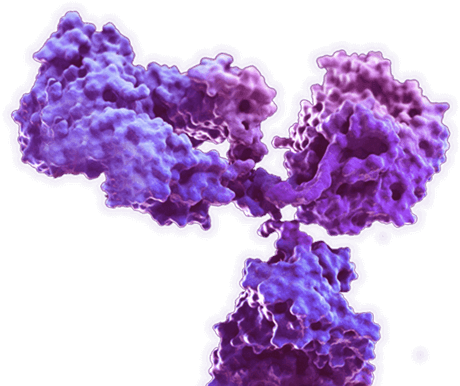AibGenesis™ Mouse Anti-AUP1 Antibody (CBMOAB-36652FYA)
Cat: CBMOAB-36652FYA

Certificate of Analysis Lookup
To download a Certificate of Analysis, please enter a lot number in the search box below. Note: Certificate of Analysis not available for kit components.
Lot Number
To download a Certificate of Analysis, please enter a lot number in the search box below. Note: Certificate of Analysis not available for kit components.
Lot Number
- Product List
- Specifications
- Application Information
- Target
| Sub Cat | Clonality | Species Reactivity | Application | Clone | Conjugate | Size | |
| CBMOAB-36652FYA | Monoclonal | Rhesus (Macaca mulatta), Cattle (Bos taurus), Chimpanzee (Pan troglodytes), Marmoset, Zebrafish (Danio rerio) | WB, ELISA | MO36652FYA | 100 µg | ||
| CBMOAB-67234FYA | Monoclonal | Zebrafish (Danio rerio) | WB, ELISA | MO67234FYA | 100 µg | ||
| MO-AB-07898R | Monoclonal | Cattle (Bos taurus) | WB, ELISA | MO07898R | 100 µg | ||
| MO-AB-16312W | Monoclonal | Chimpanzee (Pan troglodytes) | WB, ELISA | MO16312W | 100 µg | ||
| MO-AB-51647W | Monoclonal | Marmoset | WB, ELISA | MO51647W | 100 µg |
Specifications
| Host species | Mouse (Mus musculus) |
| Species Reactivity | Rhesus (Macaca mulatta), Cattle (Bos taurus), Chimpanzee (Pan troglodytes), Marmoset, Zebrafish (Danio rerio) |
| Clone | MO36652FYA |
| Specificity | This antibody binds to Rhesus AUP1. |
| Format | Liquid or Lyophilized |
| Storage | Store at 4°C: short-term (1-2weeks) Store at -20°C: long-term and future use |
| Purity | > 90% was determined by SDS-PAGE |
| Purification | Purified with Protein A or G affinity chromatography |
| Cellular Localization | Endoplasmic reticulum; Other locations |
Application Information
| Application | WB, ELISA |
| Application Notes | ELISA: 1:1000-1:3000 Other applications are to be developed. The optimal dilution should be determined by the end user. |
Target
| Introduction | The protein encoded this gene is involved in several pathways including quality control of misfolded proteins in the endoplasmic reticulum and lipid droplet accumulation. Lipid droplets are organelles in the cytoplasm that store neutral lipids such as cholesterol esters and trigylycerides to prevent the overabundance of free cholesterol and fatty acids in cells, but also to act as storage for other metabolic processes, such as membrane biogenesis. Reduced expression of this gene results in reduced lipid droplet clustering, a function that is dependent on ubiquitination of the protein. This protein contains multiple domains including a hydrophobic N-terminal domain, an acetyltranferase domain, a ubiquitin-binding CUE domain, and a UBE2B2-binding domain (G2BR). Alternative splicing results in multiple transcript variants. (From NCBI) |
| Product Overview | Mouse Anti-Rhesus AUP1 Antibody is a mouse antibody against AUP1. It can be used for AUP1 detection in Western Blot, Enzyme-Linked Immunosorbent Assay. |
| Alternative Names | Ancient ubiquitous protein 1; AUP1 |
| UniProt ID | H9FWC7 |
| Protein Refseq | The length of the protein is 410 amino acids long. The sequence is show below: MELPSGPGPERLFDSHRLPGDCFLLLALLLYAPVGFCLLVLRLFLGIHVFLVSCALPDSVLRRFVVRTMCAVLGLVARQEDSGLRDHSVRVLISNHVTPFDHNIVNLLTTCSTPLLNSPPSFVCWSRGFMEMDGRGELVESLKRFCASTRLPPTPLLLFPEEEATNGREGLLRFSSWPFSIQDVVQPLTLQVQRPLVSVTVSDASWVSELLWSLFVPFTVYQVRWLRPVHRQLGEANEEFALRVQQLVAKELGQTGTRLTPADKAEHMKRQRHPRLRPQSAQSSFPPSPGTSPDVQLATLAQRVKEVLPHVPLGVIQRDLAKTGCVDLTITNLLEGAVAFMPEDITKGTQSLPTASAPKFPSSGPVTPQPTALTFAKSSWARQESLQERKQALYEYARRRFTERRAQEAD. |
For Research Use Only | Not For Clinical Use.
Online Inquiry

